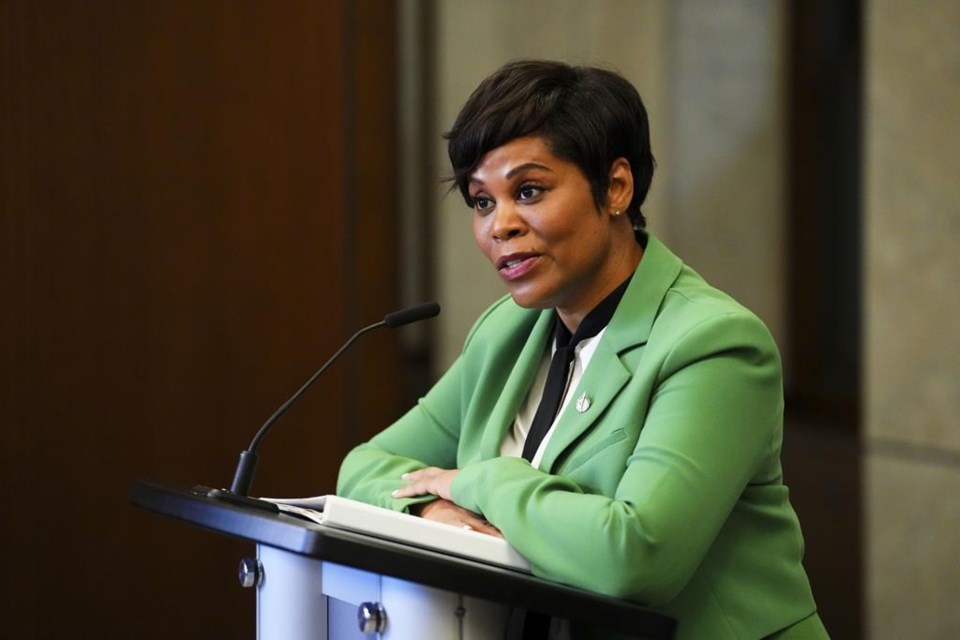WINNIPEG — Manitoba became the first province Wednesday to sign on to a new federal funding plan for crisis hotlines that help victims of gender-based violence.
The province will receive up to $1 million over four years so that crisis centres can do things such as hire more staff and train more volunteers.
"We know that crisis hotlines are a lifeline for women fleeing domestic violence," Marci Ien, the federal minister for women and gender equality and youth, said.
"Timely connection to support and services can, and often is, the difference between life and death."
Ayn Wilcox, the executive director of Klinic, a community centre in Winnipeg that operates a round-the-clock crisis line, said there has been an "alarming" increase in the volume of calls since the start of the COVID-19 pandemic.
"We're also experiencing increasing complexity of those calls, which means we need to spend more time with folks, working through," Wilcox said.
The pandemic also reduced the number of volunteers willing and able to staff Klinic's phone lines, she added.
The funding is part of a $30 million national pledge from the federal government first announced in the spring budget. Other provinces are in the process of signing similar agreements with Ottawa, Ien said.
Klinic receives annual funding from the Winnipeg Regional Health Authority to operate its crisis hotlines. The Manitoba government, under the new agreement, said it will provide some staff to help Klinic administer the federal funds.
A recent report from Statistics Canada found one in three shelters for people fleeing abuse were greatly affected in the first year of the COVID-19 pandemic.
The report looked at data from April 2021 and said there was a 49 per cent increase in the number of crisis calls when compared to before the pandemic. Several shelters reported expanding services to connect with victims digitally including by text message.
The report, using data from 557 Canadian shelters, also said 61 per cent of the facilities reported reducing their number of beds to mitigate the effects of COVID-19.
The money announced Wednesday will also help Manitoba continue to develop third-party reporting, which allows victims of sexual violence to report details of their case anonymously to police through a victim services agency.
The system lets victims access support services and lets police enter the information into a national database that tracks violent offenders.
"(Klinic is) helping the province facilitate the implementation of third-party reporting, which is tremendously impactful for many survivors of sexual violence, who may not feel comfortable going to law enforcement directly," Manitoba Families Minister Rochelle Squires said.
This report by The Canadian Press was first published Aug. 10, 2022
Steve Lambert, The Canadian Press



